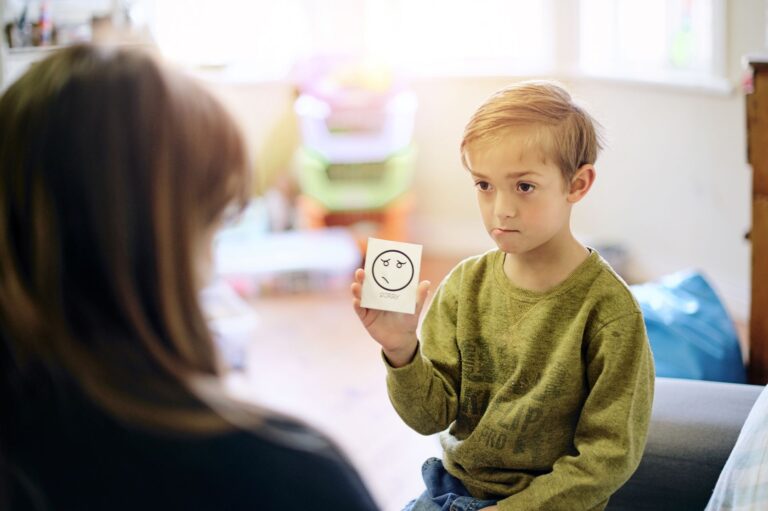“It is easier to find men who will volunteer to die, than to find those who are willing to endure pain with patience” – Julius Caesar.
I was trying to find a good “hook” quote that sums up the mental impact that pain over time presents, as well as the way it can affect one’s decision making when faced with it. Then, I came across a quote by Julius Caesar implying that it is common for one to prefer death over long-time suffering, which is an apt analogy for chronic pain. Chronic Pain means enduring pain with patience every day. It is possibly one of the hardest things to endure while showing the world your smile every day, and this hardship has even taken lives. This blog will dive into the barrage of negativity that seeps into Chronic Pain Patients’ minds that causes such difficulty in their lives. It is crucial to be aware of the effects of Chronic Pain on one’s mental health- let’s learn about them together:
To understand how pain can influence one’s mental state, we have to perceive long term pain the way Elliot Krane, a pediatrician who focuses on pain management at the Packer Children’s Hospital, does. Krane offered a crucial insight at a Ted Talk in March of 2011, “Pain is a disease. Now most of the time you think of pain as the symptom of a disease and that is true most of the time. But about 10% of the time when recovering from those events, pain persists. It persists for months and often years, and when that happens, it is its own disease”. Most of us view pain as a consequence that happens when we stub our toe on a desk. On the other hand, Chronic Pain patients perceive pain as a companion that will stick by their side for months and years to remind them of their unhealthiness and weakness. To understand how one’s mental health can suffer in these circumstances, imagine how it would feel to have spontaneous pain that could occur any time during your day, whether awake or asleep.
An important possible negative mental side effect associated with Chronic Pain is depression. In the words of the Florida Medical Clinic, “You can’t sleep, you can’t socialize, you can’t work — of course you would feel down. However, some people who endure chronic pain also experience major depressive disorder: symptoms include persistent feelings of sadness, loss of interest, inability to concentrate…”. Studies indicate that patients with long lasting Chronic Pain are at least four times more likely to suffer from depression than the average person. Depression is a quite common ailment to suffer when one is always in pain. As FMC puts it, one’s life becomes extremely challenging if not impossible to attend basic events such as school, work, and social gatherings. One’s quality of life drops dramatically when it is a struggle to do things that others do without a second thought. Depression can affect all areas of life by bringing sad thoughts, reducing appetite, making you feel as though there is no point in trying, etc.… It can also lead to the next consequence of Chronic Pain.
Suicide. Suicide can come to mind when a Chronic Pain Patient suffers so severely that they feel their struggle and pain is not worth dealing with any longer. According to a study by Cambridge, “Having suicidal thoughts is not rare, occurring in roughly 20 percent of people with chronic pain”. Factors that increase the chance of this happening include depressive thoughts, feelings of guilt, blaming themselves for what is happening to them, and most notably- unbearable pain that does not go away. If you know someone who expresses lack of hope, feels they are a burden to others, has suicidal thoughts, do not hesitate to gently talk to them and remind them that you are there for them. It could also relieve them if you assure them that there is hope, they are not a burden, and life is worth living. If they truly feel suicidal, then it is highly advisable for you both to talk to a professional. Another option includes calling the National Suicide Prevention Lifeline at 1-800-273-8255.
Another key impact that Chronic Pain has on mental health is isolation. Many Chronic Pain Patients isolate themselves from friends and family, as it can be easier to deal with their pain when they are alone. A patient suffering from high impact Chronic Pain may tell you that social events, coming to work, and obligations made are not a guarantee if their body tells them otherwise. “The feeling of loneliness is painful emotionally and can have a devastating impact on both psychological and physical health; including increased risks of depression, decreased immune system function, and stress to the cardiovascular system, ultimately impacting our longevity over the long run,” explains Judy Ho Gavazza, a Psychologist and Professor at Pepperdine University. If you know someone who feels isolated due to their circumstances, it is beneficial to reach out so that they know someone cares. Even a phone call would be a great way to tell someone you are thinking of them, if they are not in reach.
Finally, anxiety is another impact Chronic Pain can have on mental health. The Florida Medical Clinic puts it well, saying “You worry, and most of your worries are connected to your chronic pain: you worry about why you’re in pain, how you’ll pay your bills, when you’ll see your doctor, if you’ll keep your job. Your pain keeps you up at night, and you find yourself obsessing over what-if scenarios. You become fearful, wondering if the pain will ever go away or if it is actually a symptom of another serious illness.”. As the article conveys, there are many unknowns that accompany Chronic Pain, especially the high impact kind. It is easy to doubt that your pain will let you participate in activities you love, as well as constantly worry how it might affect your ability to gain income and if this condition will ever leave you one day. This condition makes it easy to become anxious about the future in addition to worrying about the present.
Chronic Pain takes away smiles, birthday parties, job opportunities, goals, security. Lives. As we learned today, Chronic Pain can also lead to a variety of negative effects on mental health. The mental health of patients deteriorates quicker and more when loneliness sets in. You cannot control the pain that those close to you feel, yet you can control how you support them- remind them they aren’t fighting alone. At Bowtie Kids, we try to send this message to every child that we can reach who is fighting through this sickness. Whether it’s supporting children through our K.E.E.S. (Kids Experiencing Empowered Support) groups or providing guidance through our many platforms, our mission is to convey to every kid with chronic pain that they are part of the Bowtie Kids Family and that we care about them. If you support our cause, please consider supporting Bowtie Kids in any way possible, including but not limited to supporting our social media presence, donating, or telling friends and loved ones about us. Together, we can reach those in need.



